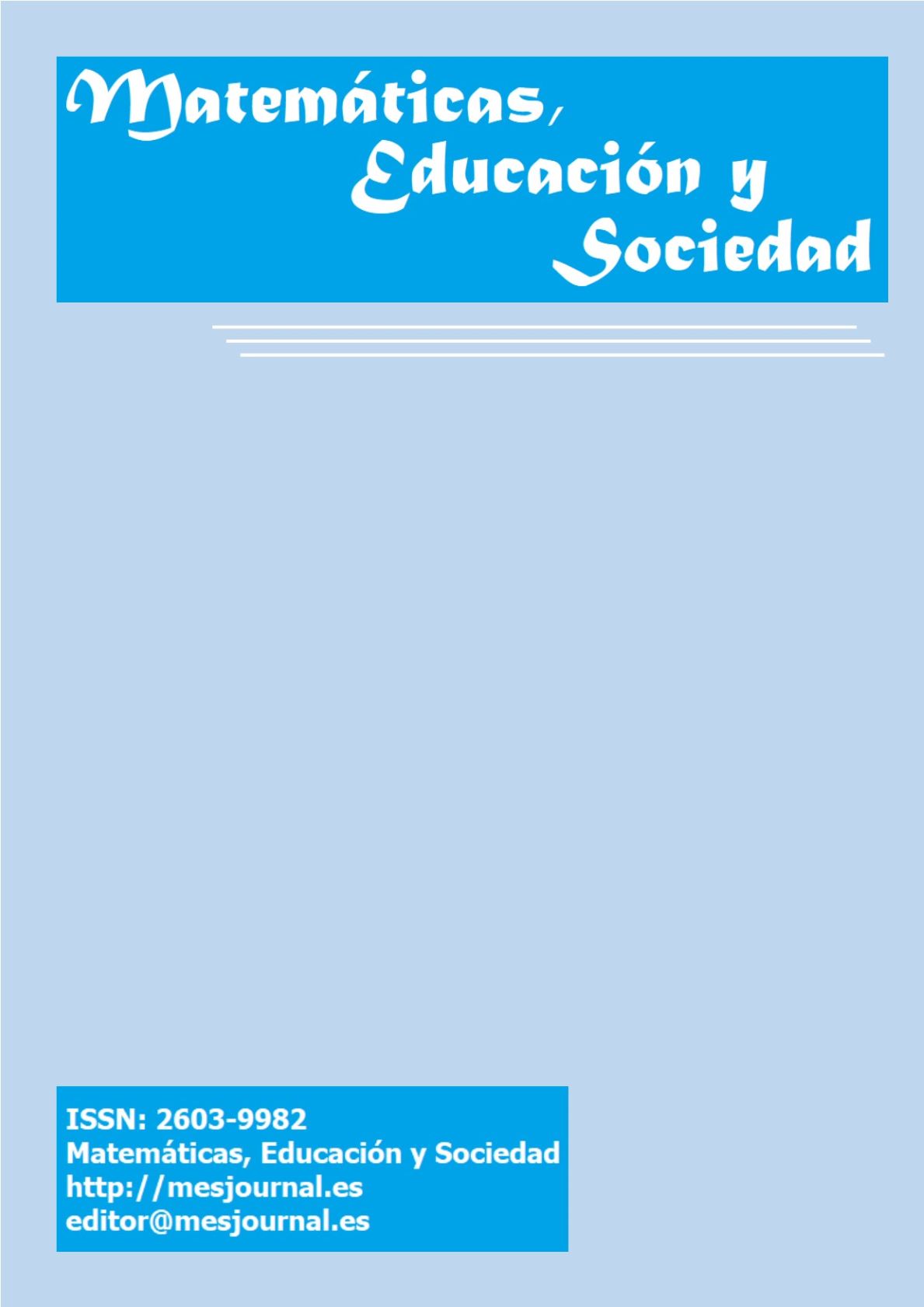Análisis bibliométrico de las tendencias y perspectivas de la programación educativa para la promoción de STEM en Educación Primaria
Contenido principal del artículo
Resumen
Este estudio describe la producción académica sobre programación educativa en la educación primaria, con un enfoque en la educación STEM. Se realizó un análisis bibliométrico utilizando la base de datos Scopus y el software R, obteniendo artículos relacionados con los descriptores de estudio en los últimos 5 años. Con una metodología de revisión sistemática, siguiendo las pautas establecidas por la Declaración de ítems de Reporte Preferidos para Revisiones Sistemáticas y Meta-Análisis (PRISMA), se identificaron 961 documentos que conformaron el cuerpo documental analizado. La revisión permite visualizar las tendencias en el campo de estudio, desarrollo investigativo y aplicación en el aula.
Descargas
Detalles del artículo
Esta obra está bajo una Licencia Creative Commons Atribución 3.0 España
Citas
Bati, T. B., & Workneh, A. W. (2021). Evaluating integrated use of information technologies in secondary schools of Ethiopia using design-reality gap analysis: A school-level study. The Electronic Journal of Information Systems in Developing Countries, 87, e12148. https://doi.org/10.1002/isd2.12148
Bodaker, L., & Rosenberg-Kima, R. B. (2023). Online pair-programming: Elementary school children learning scratch together online. Journal of Research on Technology in Education, 55(5), 799–816. https://doi.org/10.1080/15391523.2022.2036653
Dong, W., Li, Y., Sun, L., & Liu, Y. (2024). Developing pre-service teachers’ computational thinking: a systematic literature review. International Journal of Technology and Design Education, 34, 191–227. https://doi.org/10.1007/s10798-023-09811-3
Echchakoui, S. (2020). Why and how to merge Scopus and Web of Science during bibliometric analysis: the case of sales force literature from 1912 to 2019. Journal of Marketing Analytics, 8, 165–184. https://doi.org/10.1057/s41270-020-00081-9
English, L. D. (2016). STEM education K-12: Perspectives on integration. International Journal of STEM Education, 3, 1–8. https://doi.org/10.1186/s40594-016-0036-1
Hsu, T.-C., Chang, C., Wong, L.-H., & Aw, G. P. (2022). Learning Performance of Different Genders’ Computational Thinking. Sustainability, 14(24), 16514. https://doi.org/10.3390/su142416514
Kong, S.-C. (2022). Problem formulation in computational thinking development for nurturing creative problem solvers in primary School. Education and Information Technologies, 27,(9) 12523–12542. https://doi.org/10.1007/s10639-022-11101-9
Kong, S.-C., & Wang, Y.-Q. (2023). Monitoring cognitive development through the assessment of computational thinking practices: A longitudinal intervention on primary school students. Computers in Human Behavior, 145(C), 107749. https://doi.org/10.1016/j.chb.2023.107749
Liang, W., & Fung, D. (2023). Designing STEM Education in Small Class Teaching Environments: The Hong Kong Experience. Asia-Pacific Education Researcher, 32, 189–209. https://doi.org/10.1007/s40299-022-00643-8
Lodi, M., & Martini, S. (2021). Computational Thinking, Between Papert and Wing. Science & Education, 30, 883–908. https://doi.org/10.1007/s11191-021-00202-5
Luo, T., Reynolds, J., & Muljana, P. S. (2022). Elementary Students Learning Computer Programming: an investigation of their knowledge Retention, Motivation, and perceptions. Educational technology research and development, 70, 783–806. https://psycnet.apa.org/doi/10.1007/s11423-022-10112-0
Martínez-Roa, H., Gutiérrez-Arenas, M.P., & Rodríguez, M.J. (2024). La investigación sobre e-learning en Educación matemática. Matemáticas, Educación y Sociedad, 7(3), 1-12. https://journals.uco.es/mes/article/view/17580
Mukasheva, M., & Omirzakova, A. (2021). Computational Thinking Assessment at Primary School in the Context of Learning Programming. World Journal on Educational Technology: Current Issues, 13(3), 336–353. http://doi.org/10.18844/wjet.v13i3.5918
Pranckutė, R. (2021). Web of Science (WoS) and Scopus: The titans of bibliographic information in today’s academic world. Publications, 9(1), 12. https://doi.org/10.3390/publications9010012
Sánchez-Rivas, E., Colomo-Magaña, E., Ruiz-Palmero, J., & Gómez Garcı́a, M. (Ed). (2022). La tecnologı́a educativa como eje vertebrador de la innovación. Octaedro. https://doi.org/10.36006/16352
Shang, X., Jiang, Z., Chiang, F.-K., Zhang, Y., & Zhu, D. (2023). Effects of robotics STEM camps on rural elementary students’ self-efficacy and computational thinking. Educational technology research and development, 71, 1135–1160. https://doi.org/10.1007/s11423-023-10191-7
Tellhed, U., Björklund, F., & Strand, K. K. (2022). Sure I can code (but do I want to?). Why boys' and girls’ programming beliefs differ and the effects of mandatory programming education. Computers in Human Behavior, 135, 107370. https://doi.org/10.1016/j.chb.2022.107370
Vega-Castro, D., & Melo-Londoño, S. (2024). Difusión científica de la educación matemática: un análisis a la revista MES. Matemáticas, Educación y Sociedad, 7(3), 28-39. https://journals.uco.es/mes/article/view/17693
Wan, Z. H., So, W. M. W., & Zhan, Y. (2023). Investigating the Effects of Design-Based STEM Learning on Primary Students’ STEM Creativity and Epistemic Beliefs. International Journal of Science and Mathematics Education, 21 (suppl 1), 87–108. https://doi.org/10.1007/s10763-023-10370-1
Wang, C., Shen, J., & Chao, J. (2022). Integrating computational thinking in STEM education: A literature review. International Journal of Science and Mathematics Education, 20, 1949–1972. http://doi.org/10.1007/s10763-021-10227-5
Wawan, W., Zuniati, M., Windarsih, W., Aziz, I., Mispani, M., & Sari, Y. A. (2022). Teacher Training and Assistance of Flipped Learning Integration for School. Bulletin of Community Engagement, 3(1), 27–35. https://doi.org/10.51278/bce.v3i1.478
Widowati, C., Purwanto, A., & Akbar, Z. (2021). Problem-based learning integration in STEM education to improve environmental literation. International Journal of Multicultural and Multireligious Understanding, 8(7), 374–381. https://doi.org/10.18415/ijmmu.v8i7.2836
Zhu, J., & Liu, W. (2020). A tale of two databases: The use of Web of Science and Scopus in academic papers. Scientometrics, 123, 321–335. https://doi.org/10.1007/s11192-020-03387-8
Zupic, I., & Čater, T. (2015). Bibliometric Methods in Management and Organization. Organizational Research Methods, 18(3), 429–472. https://doi.org/10.1177/1094428114562629

